Non-Crazy Questions (V)
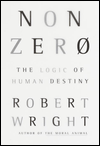 In the previous four posts in this series, Non-Crazy Questions (IV) and its three predecessors, I've been discussing what I think of as Robert Wright's "emergentist" understanding of Darwinian evolution, as presented in his book Nonzero: The Logic of Human Destiny. Wright has it that human cultural evolution echoes Darwin's biological evolution in that both are not as aimless as most Darwinists say. Natural selection at first favors cuthroat competition but gradually, as the eons roll by, puts more and more emphasis on non-zero-sumness, which is a notion Wright borrows from the scientific field of game theory.
In the previous four posts in this series, Non-Crazy Questions (IV) and its three predecessors, I've been discussing what I think of as Robert Wright's "emergentist" understanding of Darwinian evolution, as presented in his book Nonzero: The Logic of Human Destiny. Wright has it that human cultural evolution echoes Darwin's biological evolution in that both are not as aimless as most Darwinists say. Natural selection at first favors cuthroat competition but gradually, as the eons roll by, puts more and more emphasis on non-zero-sumness, which is a notion Wright borrows from the scientific field of game theory.Favoring positive non-zero-sum games predisposes evolution to produce ever greater biological complexity, leading to the emergence of intelligent animals like us who then develop cultures. After the onset of civilized life, the bias towards playing non-zero-sum, win-win games makes that human culture ever richer and more complex, leading up to the possibility today of an incipient global "superorganism" with a "superbrain" composed of Internet-connected humanity.
And there's a moral dimension to it all. A world of emerging "true empathy" and universal brotherhood is a distinct possibility, one fine day in the not-too-far-distant future.
As if that, all by itself, weren't enough to link evolution to religion and the more this-world-oriented of its values, Wright says that the one thing about us humans that evolution theory can't explain is our sentience, our mental consciousness. It is this salient characteristic of all human persons that prevents each of us from being as disposable as an outmoded robot or computer chip. Sentience places us in the love-thy-neighbor moral category, not the consider-our-fellow-humans-dispensible category.
Where, then, does our capacity for subjective mental experience come from? After all, since it's superfluous to our fitness-bestowing functionality (or so Wright claims) natural selection must be blind to it. So, could it be God's own stamp placed upon our natural, physical beings?
A lot, accordingly, can potentially be inferred from the fact that our sentience is epiphenomenal ... asssuming, that is, that it is as superfluous to anything natural selection cares about as Wright claims it to be.
 Malcolm Gladwell's recent bestseller Blink offers what appears to me to be some amount of insight into what Wright means when he says that our consciousness is epiphenomenal. (Or else it offers me a chance to prove that I really am in way over my head in trying to understand such matters!)
Malcolm Gladwell's recent bestseller Blink offers what appears to me to be some amount of insight into what Wright means when he says that our consciousness is epiphenomenal. (Or else it offers me a chance to prove that I really am in way over my head in trying to understand such matters!)Gladwell, whose day job is staff writer for The New Yorker, says his "is a book about the first two seconds" (p. 13, large-print edition) — the instants in time just after you are presented with something new in which you must make a snap judgment about that thing. In many situations, your first two-second snap judgment — an instance of so-called "rapid cognition" — can outperform months of careful data analysis.
Why? Because of "the big computer in your brain — your adaptive unconscious" (p. 90). The adaptive unconscious — which has nothing to do with, say, Freud's notion of the unconscious — is neural wiring in your brain that can take in a raft of information, quickly "thin slice" it to figure out which very few pieces of it are most significant, and use just those pieces to come to a sound spur-of-the-moment decision.
The good news and the bad news here is: your snap-judgment supercomputer is wholly unconscious. You can't for the life of you say why you made the judgment or decision you did make in that merest blink of an eye.
That's good news because it prevents our conscious mind from being overwhelmed and taking minutes or hours or years to make the same (or possibly a much worse) choice by means of the kinds of reasoning it is good at. "We don't want," writes Gladwell (p. 103), "to stand there endlessly talking through our options. Sometimes we're better off if the mind behind the locked door makes our decisions for us."
And it's bad news, because, after the snap judgment has been made, we have no idea how to justify it ... even to ourselves. The "mind behind the locked door" leaves no conscious audit trail.
True, scientists have been able to devise clever experiments which allow the hidden mental activity to show up in things like measurements of how much the palms of the hands have started sweating. Gladwell describes one experiment which tested the ability of participants to pick up the fact that the red decks of cards were bad luck (they were stacked) and the blue decks would let them win (they were stacked in a different way).
Normal subjects' physical indicators revealed that the "mind behind the locked door" had begun to suspect the red decks very early on in the experiment, well before the subjects actually started shying away from the red decks ... which itself came well before they could begin to articulate their suspicions.
Subjects who were suffering from brain damage to a crucial portion of the prefrontal cortex called the ventromedial area — apparently a major contributor to the adaptive unconscious, the "mind behind the locked door" — figured out just fine that the red decks were bad news. But they never got sweaty palms. And this is key: "[A]t no time — not even after they had figured the game out — did the patients adjust their strategy to stay away from the problem cards. They knew intellectually what was right, but that knowledge wasn't enough to change the way they played the game" (p. 102).
How does this relate to the epiphenomenality of consciousness, per Wright? It looks to me as if the ventromedial area and the rest of the adaptive unconscious might be what natural selection has honed, based on its strong positive contribution to our Darwinian fitness. The adaptive unconscious, "the big computer in the brain," is thus the robot-zombie side of us, in Wright's metaphor for the aspect of our mentality that is not epiphenomenal.
Gladwell even says such experiments "suggest that what we think of as free will is largely an illusion" (p. 98). Speaking as a Catholic Christian, I note that theologians in my church are big on "free will," whose opposite, in the lexicon of theologians and philosophers, is "determinism." In Catholic theology, if we possess no free will, the whole Christian worldview falls to pieces. How can we freely accept the salvation offered by Christ's cross if we live in a wholly deterministic world?
So, I'm thinking, if we have free will at all, it is not located in the adaptive unconscious, which may well be the seat of our Darwinian fitness, and which natural selection is clearly anything but blind to.
Human free will, if any, is thus an aspect of human consciousness, of sentience ... of that epiphenomenal "shadow" of our minds which gives our lives moral import and whispers to Robert Wright of the possibility that God exists.
Again the dichotomy between consciousness and cognition — the latter being the apparent bailiwick of the adaptive unconscious, per Gladwell — speaks for God. In this case, the distinction is that between conscious free will and unconscious determinism. In Wright's example, on the other hand, the distinction is between epiphenomenal sentience and a more robotlike mental acuity. But the two dichotomies seem to pattern together — they may even be two ways of expressing the same dichotomy — and suggest that scientific inquiry ought not to be as religion-blind as it is often cracked up to be.
More on these topics is coming in Non-Crazy Questions (VI).






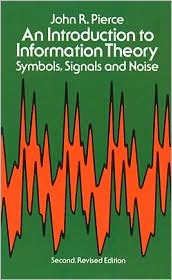

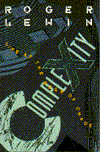


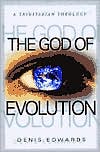

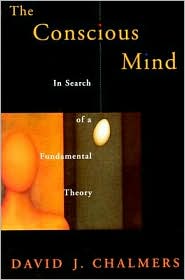
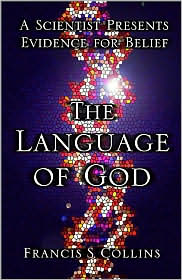


0 Comments:
Post a Comment
<< Home